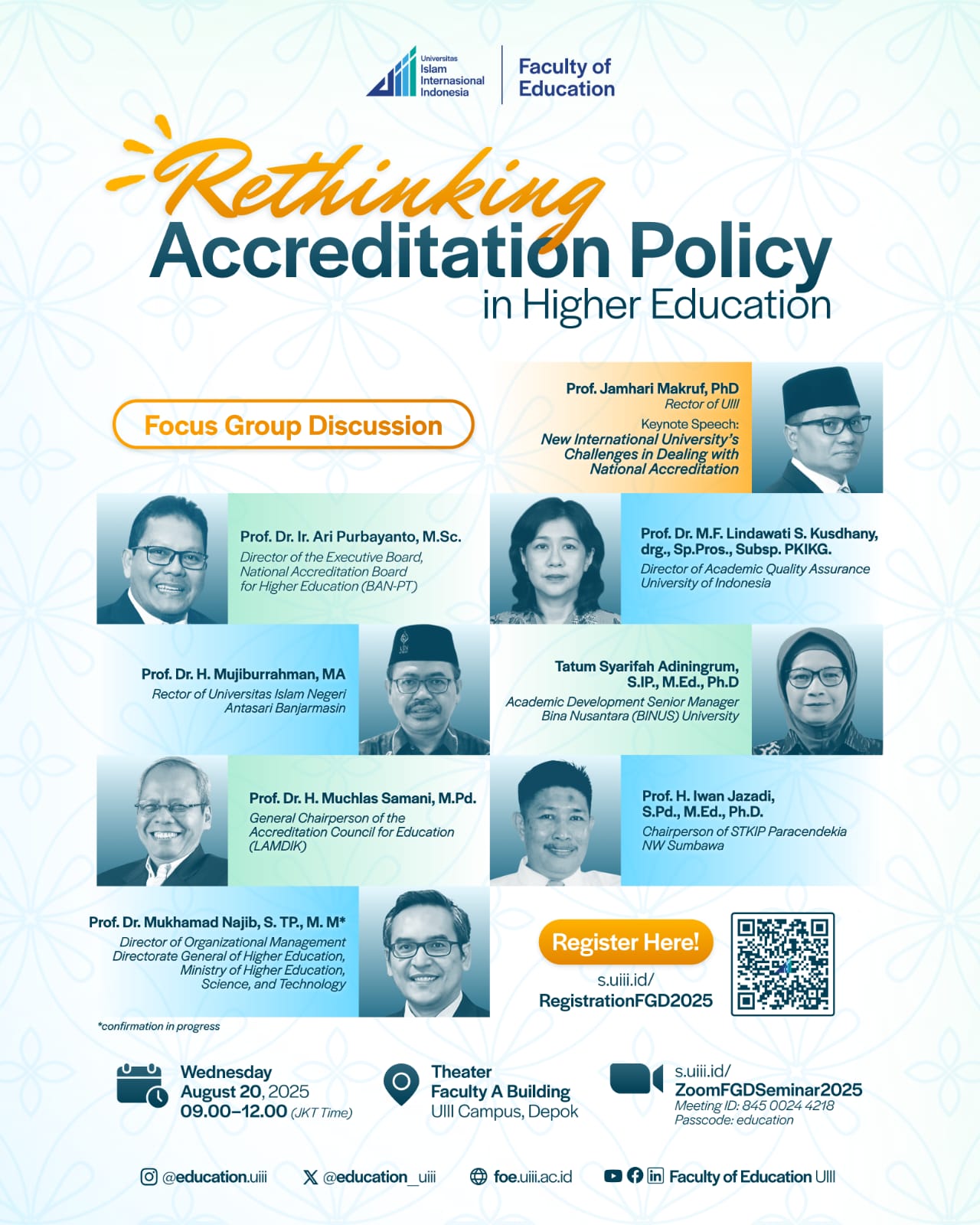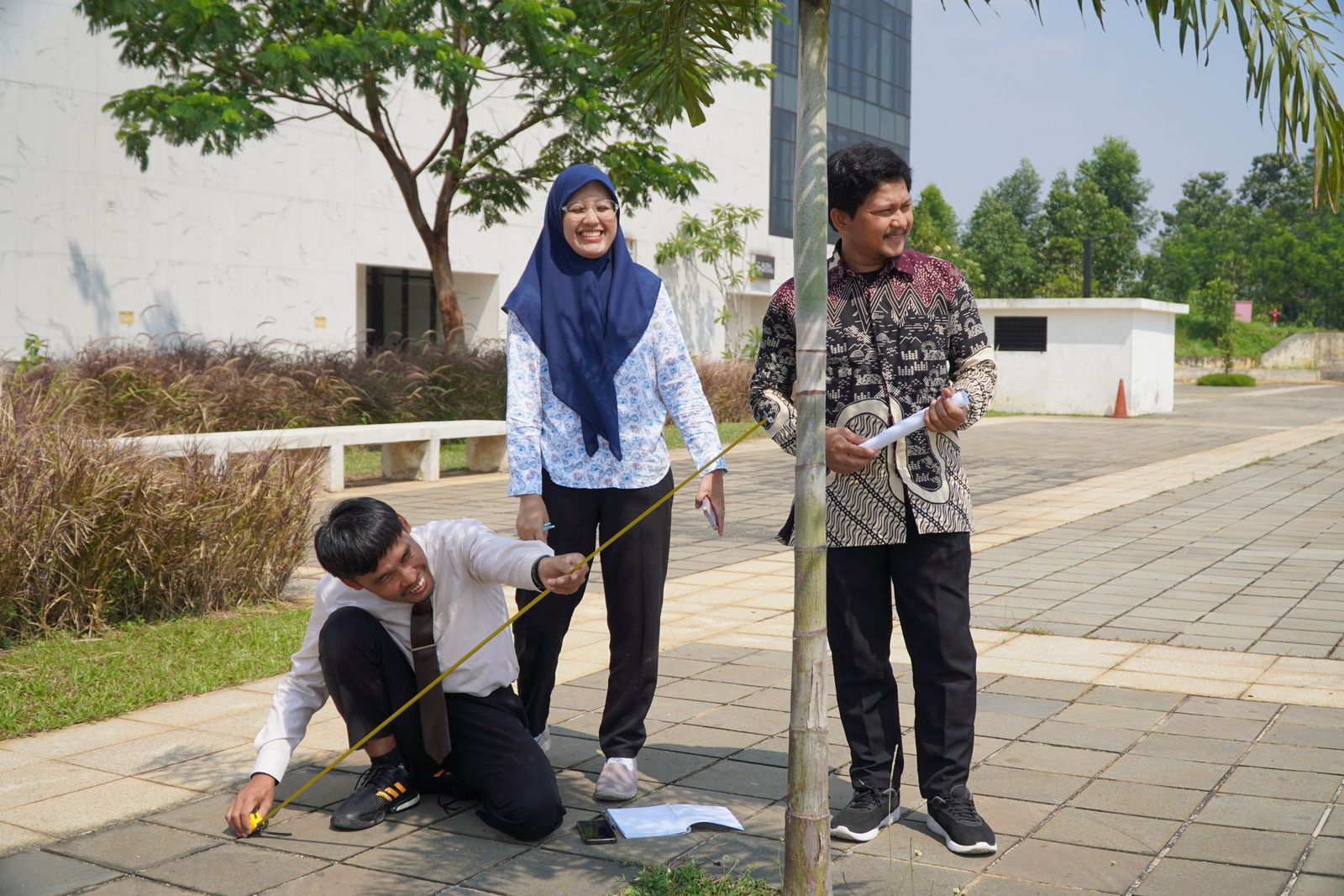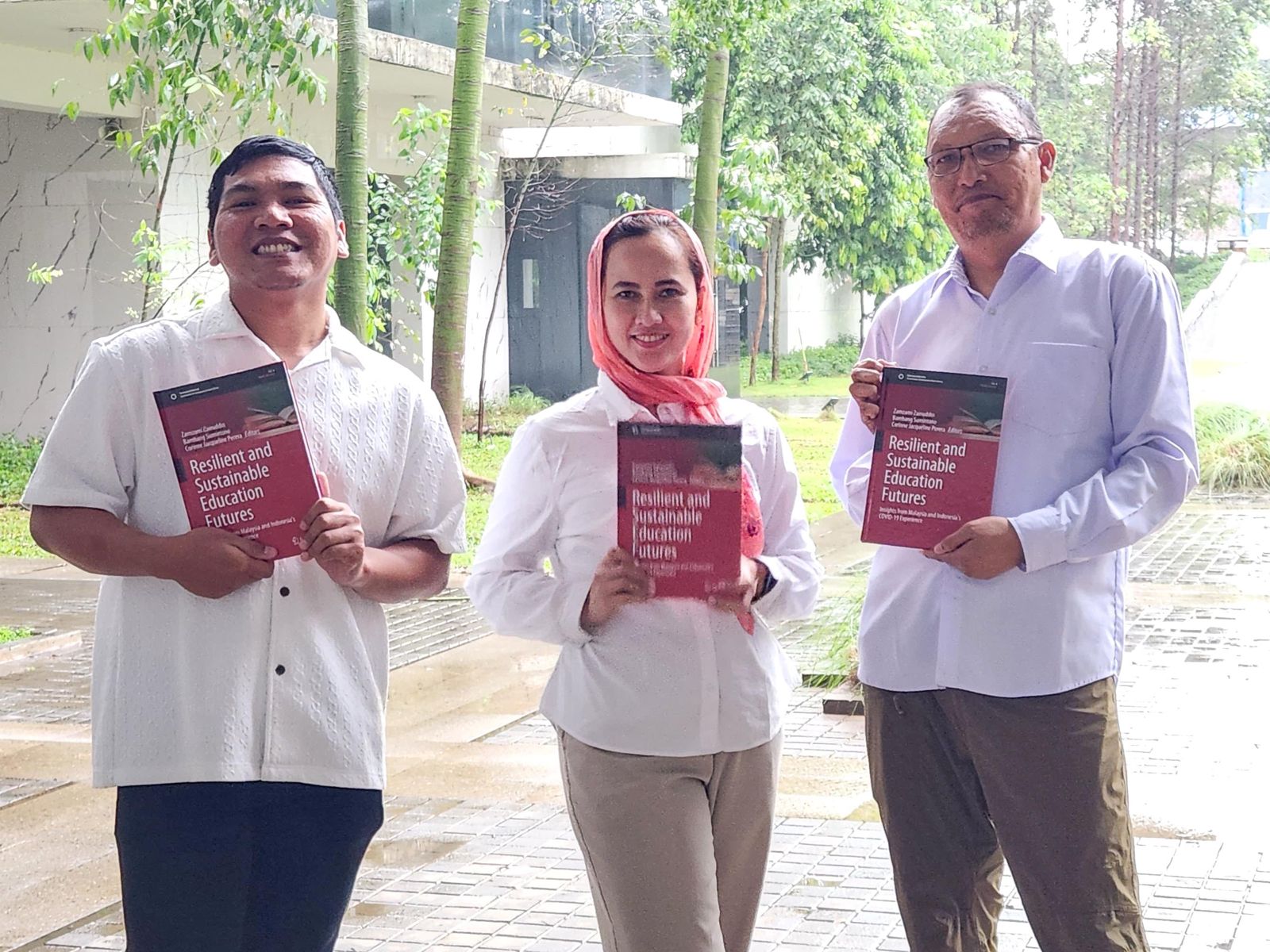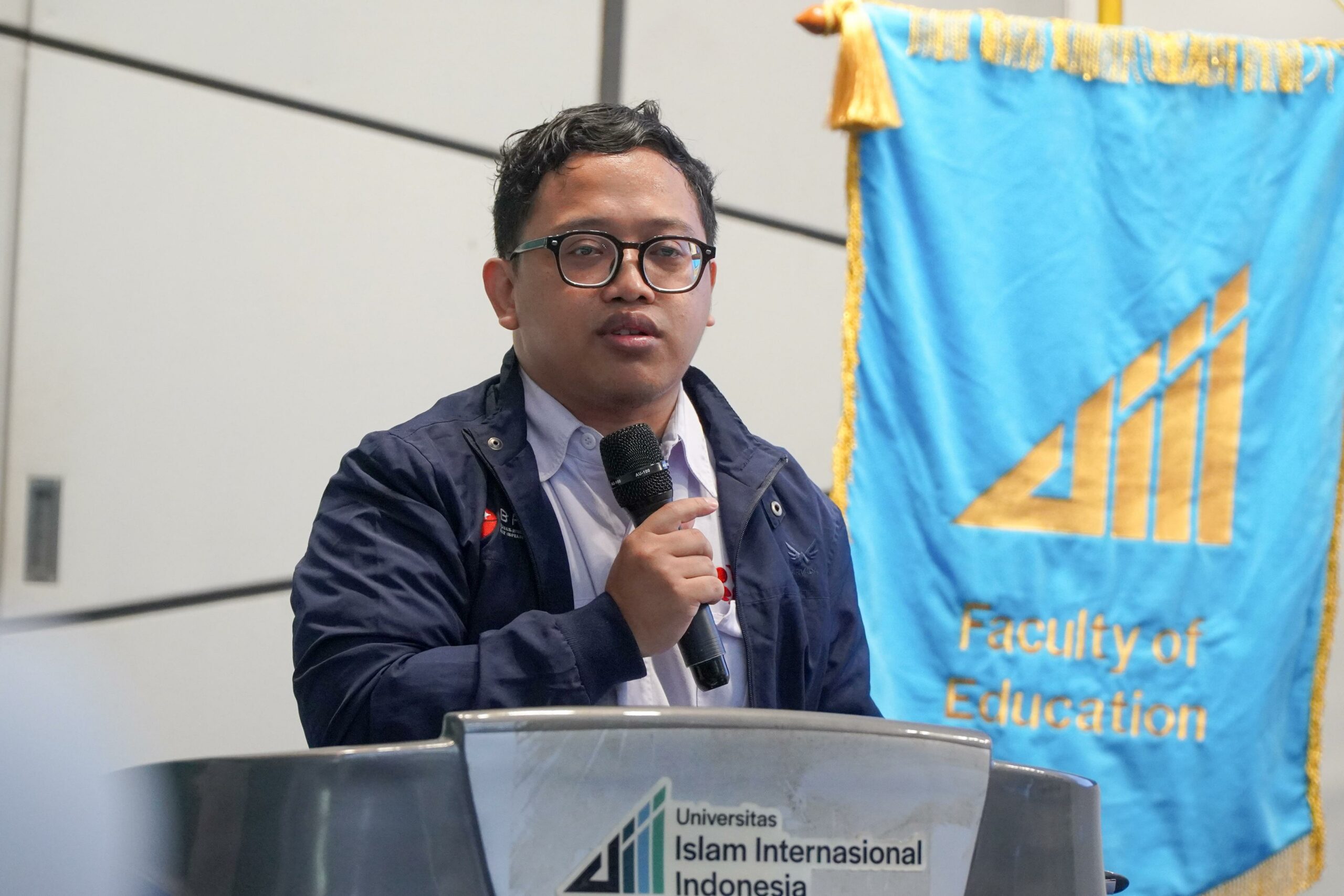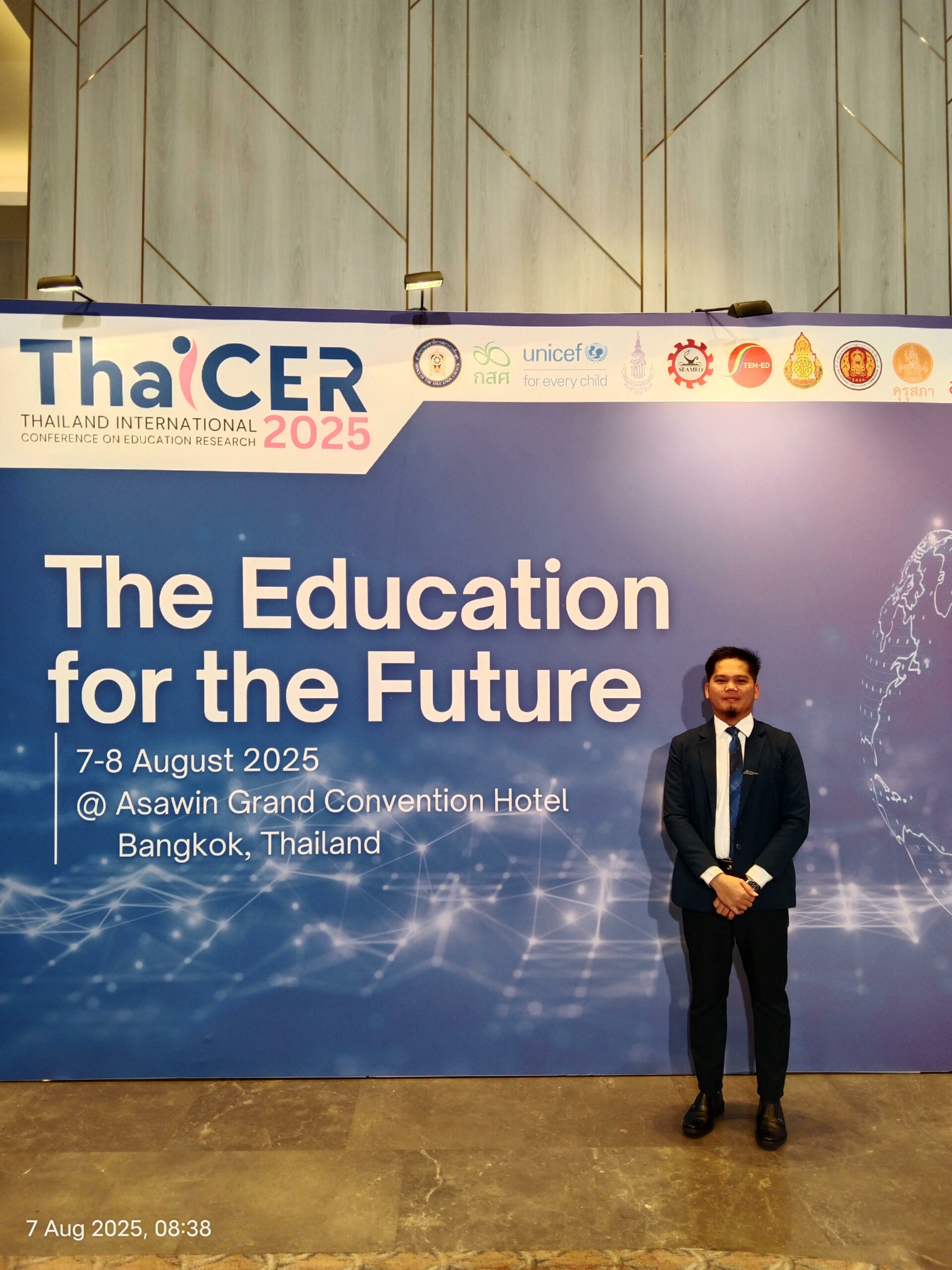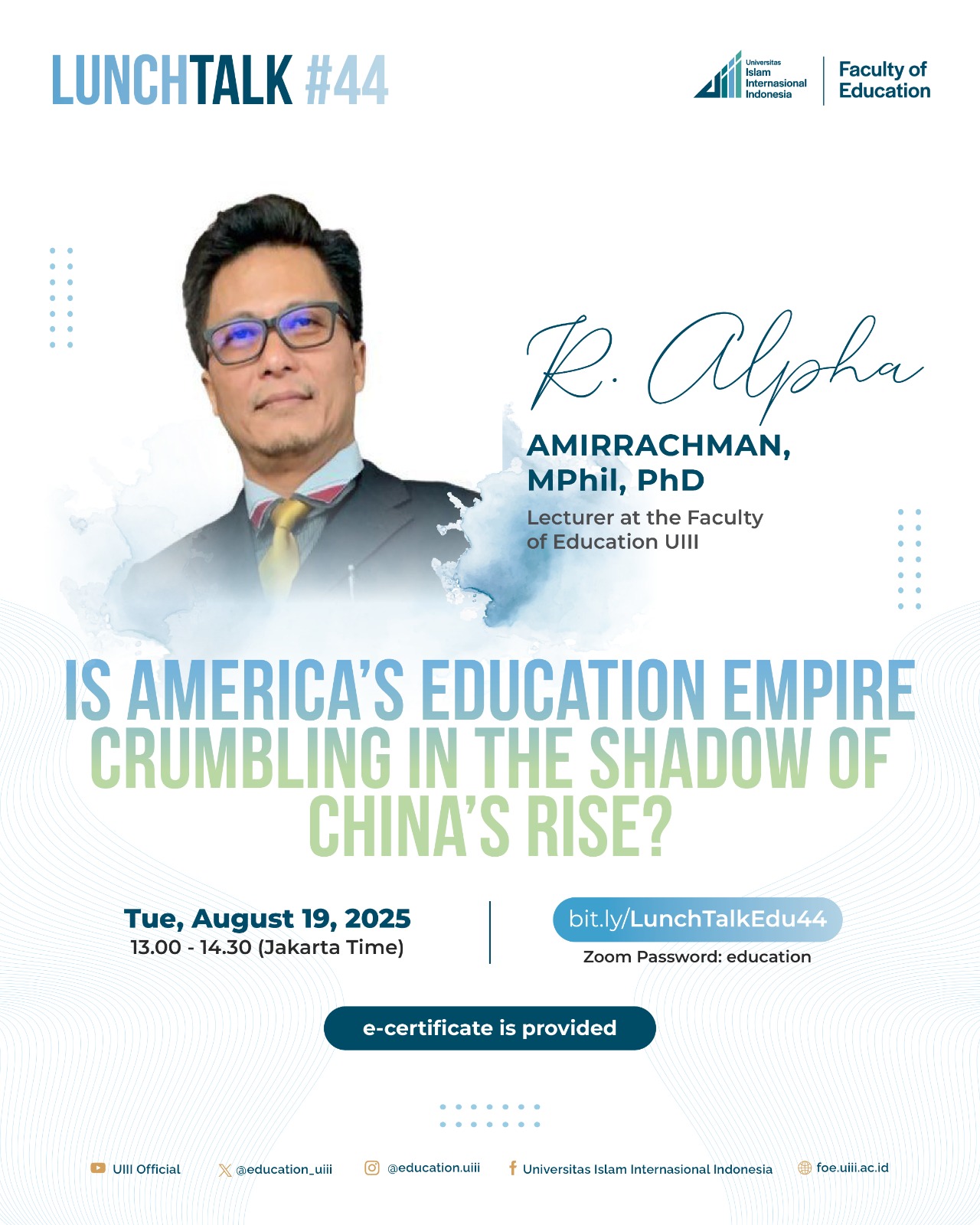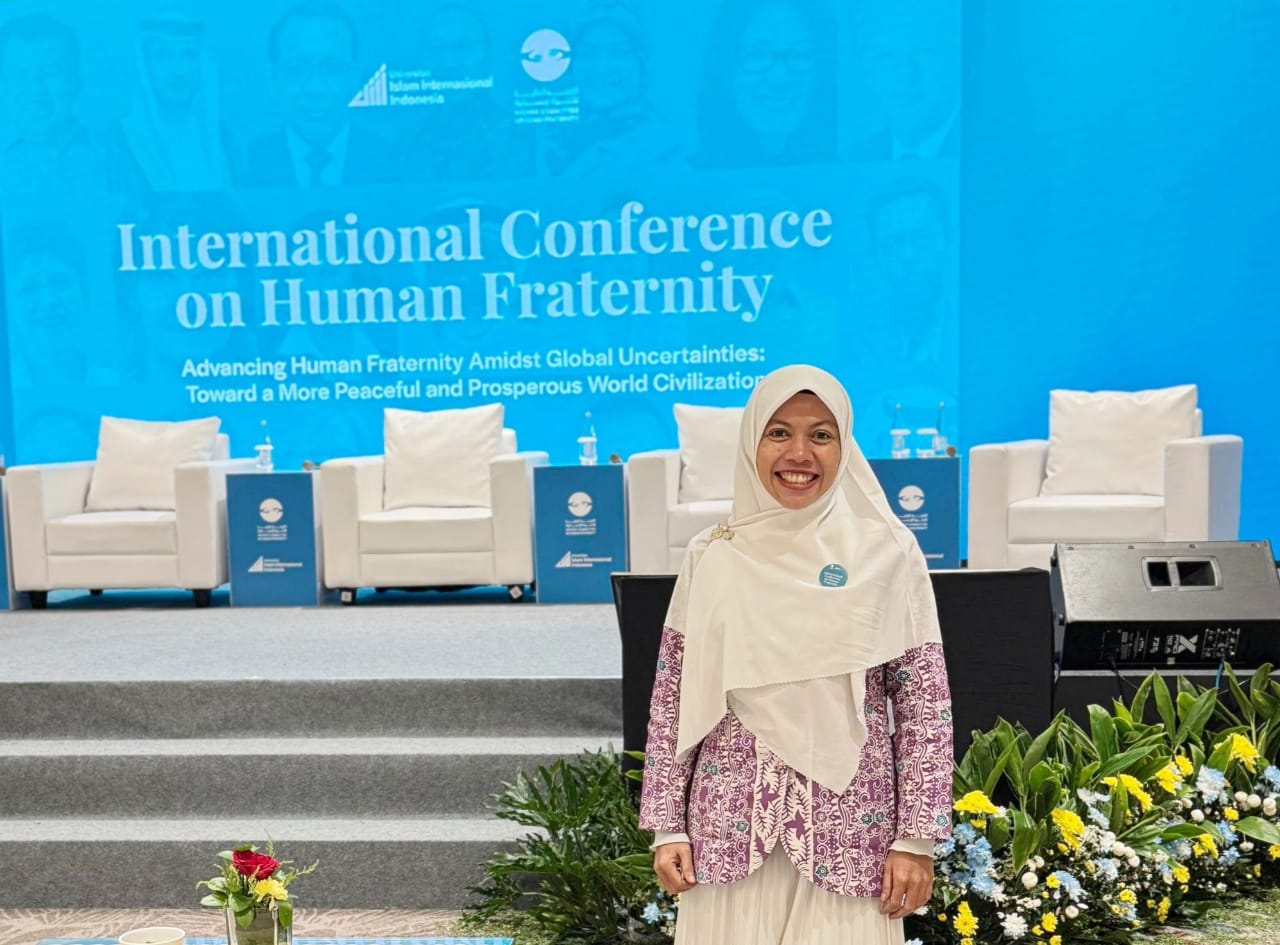FGD: RETHINKING ACCREDITATION POLICY IN HIGHER EDUCATION

FGD: RETHINKING ACCREDITATION POLICY IN HIGHER EDUCATION
The topic of accreditation within Indonesian higher education has been an ongoing discussion in line with educational reforms—whether to maintain the current hierarchical categories of “Baik (good), Baik Sekali (very good), Unggul (outstanding)” or to adopt a binary accreditation system of “Accredited” and “Not Accredited.”
In response to this discourse, the Faculty of Education at Universitas Islam Internasional Indonesia gladly invites you to join our Focus Group Discussion (FGD) under the theme “Rethinking Accreditation Policy in Higher Education”. This FGD will feature speakers from public and private higher education institutions, as well as relevant governmental and quality assurance organizations to share insights on what constitutes ideal, impartial, and needs-based accreditation policies.
This event will be held on:
? Wednesday, August 20, 2025
? 09.00-12.00 (Jakarta time)
? Theater, Faculty A Building
Please RSVP through the following link:
? s.uiii.id/RegistrationFGD2025
#Education #Accreditation
#UniversitasIslamInternasionalIndonesia
Recorded on YouTube
https://www.youtube.com/watch?v=vWezAwXwtCg
Math Meets Adventure: Teachers Turn Into Math Explorers at STEM Trails Workshop at UIII

Math Meets Adventure: Teachers Turn Into Math Explorers at STEM Trails Workshop at UIII
August 15, 2025
Contributor: Supriyono | Editor: Dadi Darmadi | Photo: Virda Lalitya Umam
What if we say that math lessons should not always happen in classrooms filled with formulas on the board? On Friday, 25 July 2025, a group of math teachers in Depok left their desks for the outdoors, turning the city into one giant problem-solving playground.
This workshop was called ‘STEM Trails with Socio-Scientific Issues’, hosted by UIII’s Faculty of Education in collaboration with Universitas Negeri Semarang (UNNES), Universitas Syiah Kuala (USK), and the Math Trails Lab community. It was part of the nationwide ‘Reset Kolaborasi Indonesia (RKI)’ project, which brings together 24 PTN-BH across the country to collaborate in comprehensive research.
The idea is simple but exciting: use MathCityMap (https://mathcitymap.eu/en/), a digital tool that transforms parks, streets, and public spaces into real-life math challenges. Participants learned to design tasks based on local socio-scientific issues—that can be problems rooted in societies, so students can connect math to real life.
“This project is our way of showing that math can be fun, relevant, and tied to the real world,” said Dr. Destina Wahyu Winarti, a lecturer at UIII’s Faculty of Education and lead organizer for the Depok session. “We want students to solve problems they can actually see, not just read about in a textbook. It is like throwing one stone and getting two birds—helping them understand math better while also raising awareness about issues that matter in their own communities.”
One of the guest speakers, Adi Nurcahyo from UNNES explained that MathCityMap was developed in Frankfurt, Germany, in 2013. “It’s about taking math outdoors with the help of technology,” he said. “We’ve built the Math Trails Lab to adapt it for Indonesia, so teachers, students, and even the public can join in. You might find math problems in a city park, a museum, or even a historic building.”
The workshop was not just about theory—teachers hit the field, completing math trails themselves. Novita Andriani from SMAIT Al Haraki said, “It was fun because we had to find task points in our nearby environment. We couldn’t work alone—we debated, corrected each other, and in the end, we solved the problems together.”
For Febriyansyah, a math teacher at SMP Pesantren Cendekia Amanah, the biggest wish is for the program to grow: “It’s amazing, especially with trainers from different regions. I hope we can bring it to more places, especially remote areas in eastern Indonesia.”
By the end of the workshop, one thing was clear—math doesn’t have to be boring. With the right tools, a little creativity, and a willingness to step outside, it can feel like an adventure.
UIII Faculty of Education Scholars Contribute to Springer Nature Book on Sustainable Education Futures

UIII Faculty of Education Scholars Contribute to Springer Nature Book on Sustainable Education Futures
August 14, 2025
Contributor: Supriyono | Photo: Bambang Sumintono
Several scholars from the Faculty of Education at Universitas Islam Internasional Indonesia (UIII) have published book chapters in “Resilient and Sustainable Education Futures: Insights from Malaysia and Indonesia’s COVID-19 Experience”, part of the international publisher Springer Nature Sustainable Development Goals (SDGs) Series.
The book was edited by Dr. Zamzami Zainuddin from the College of Education, Psychology and Social Work, Flinders University, Adelaide, Australia; Dr. Bambang Sumintono from Faculty of Education, UIII; and Dr. Corinne Jacqueline Perera from Shangrao Normal University, China.
The volume highlights innovative and impactful approaches to learning, showcasing how technology can make classrooms more engaging and enjoyable. Grounded in the post-pandemic education experiences of Malaysia and Indonesia, it offers empirical insights into the challenges and opportunities that emerged during COVID-19 in schools.
Serving as a practical resource for educators, researchers, and policymakers, it provides guidance on curriculum renewal, alternative assessment methods, teacher professional growth, student engagement, and inclusive pedagogies for marginalized communities, all in line with the global pursuit of sustainable education.
The book features multiple chapters authored by UIII faculty members. Dr. Bambang Sumintono co-authored “School Leadership Resilience During the COVID-19 Pandemic: Indonesian Experience”; “Islamic Leadership and School Resilience in Times of Crisis: Lessons from Indonesian Primary Schools Post-COVID-19 Pandemic” and “Reinventing Sustainable Learning in Malaysia and Indonesia: Lessons Learned from COVID-19.”
Meanwhile, Dr. Tati Lathipatud Durriyah was the lead author of “Navigating Teacher Agency: Implementing an Innovative Literacy Teaching Model in Indonesian Classrooms.”
Additionally, Supriyono also become the lead author in “School Digitalization Strategies in Non-strategic Settings: Insights from Islamic Boarding Schools in Rural Indonesia,” with contributions from two other UIII MA in Education graduates, Muhammad Numan and Muhammad Fayyaz Mumtaz. Supriyono also co-authored “Islamic Leadership and School Resilience in Times of Crisis: Lessons from Indonesian Primary Schools Post-COVID-19 Pandemic.”
Beyond UIII, the book also includes contributions from other Indonesian Islamic higher education institutions (PTKIN), featuring four chapters written by lecturers from UIN Syarif Hidayatullah Jakarta, and one chapter from UIN Walisongo Semarang and UIN Sunan Kalijaga Yogyakarta.
Reflecting on the publication, Dr. Bambang Sumintono noted that this collaborative work not only documents educational resilience during COVID-19 but also offers sustainable strategies for the future. “The pandemic challenged us to rethink education. This book captures the lessons and innovations that can inspire future practices,” he said.
This Springer Nature publication reinforces UIII’s growing scholarly footprint in global education discourse and showcases Indonesia’s contributions—UIII in particular—to building more resilient and sustainable education futures.
Click to visit link of the book: Resilient and Sustainable Education Futures: Insights from Malaysia and Indonesia’s COVID-19 Experience.
KUPI Approach to Qur’an and Hadith Re-interpretation
 Nurmila, N. (2025). KUPI Approach to Qur’an and Hadith Re-interpretation. African Journal of Gender and Religion, 31(1). https://doi.org/10.36615/vqcta754
Nurmila, N. (2025). KUPI Approach to Qur’an and Hadith Re-interpretation. African Journal of Gender and Religion, 31(1). https://doi.org/10.36615/vqcta754
Abstract
Critical theory argues that knowledge is not value free. It is influenced by the interest, context, and background of the knowledge producers. Many books of tafsir (Qur’anic exegesis) have been written, primarily by men based on their experiences. These tafsirs are not free from male interest. As Farid Esack argues, classical tafsirs, mostly written by men, tend to be male-biased and discriminatory against women. Since the late 1990s, with the growing influence of global Muslim feminism, there have been increasing number of books in Indonesia that criticize the male-biased interpretations of the Qur’an and produce alternative readings from an equal gender perspective, such as those written by Nasaruddin Umar, Zaitunah Subhan, Nurjannah Ismail, Husein Muhammad, and many others. Recent works have been produced by Badriyah Fayumi, Nur Rofiah and Faqihuddin Abdul Kodir, the leading founders and organizers of the Congress of Indonesian Women Ulama (KUPI). This article explores three new methodologies of tafsir developed in the current Indonesian context by three scholars: Badriyah Fayumi’s reading of maʿrūf (religiously, reasonably, and socially acceptable), Nur Rofiah’s concept of women’s haqiqi (real) justice, and Faqihuddin Abdul Kodir hermeneutical approach of qirā’ah mubādalah (reciprocal reading). These new approaches to understanding Islamic sources were launched during KUPI II in 2022 to be KUPI’s methodology.
How to Use AI Ethically in Academic Writing? Insights from Dr. Soeharto

How to Use AI Ethically in Academic Writing? Insights from Dr. Soeharto
August 13, 2025
Contributor: Supriyono | Editor: Dadi Darmadi | Photo: Virda Lalitya Umam
For many academics, the idea of using Artificial Intelligence in research still feels like stepping into uncharted territory. Concerns about authorship, originality, and academic integrity often dominate the discussion. But for Dr. Soeharto, Scholar in Residence at UIII’s Faculty of Education, the conversation has already shifted from whether to use AI (or not) to how to use it ethically and responsibly.
Besides being Scholar in Residence at UIII’s Faculty of Educatio, Dr. Soeharto is also a researcher at Indonesia’s National Research and Innovation Agency (BRIN). He has published papers in leading academic journals, some of which were developed with the assistance of AI. Speaking to students and the academic community at LunchTalk #43 on July 22, 2025, he emphasized that before integrating AI into scientific writing, scholars must first understand the relevant guidelines and be transparent about their use.
“When you use AI in scientific writing, the first thing you need to know is the guideline and the ethics,” he explained. “You have to be honest about which parts of your work use AI, which parts you can improve with AI, and which parts require input from other experts. Disclosing your AI use is an important academic integrity practice.”
Referencing Springer and Elsevier guidelines on how to use AI ethically, Dr. Soeharto noted that avoiding AI entirely in today’s research landscape is unrealistic. Instead, he encouraged scholars to embrace AI as a partner that can accelerate their work. “For academic work, don’t forget to disclose any AI-related assistance. We cannot avoid AI in scientific writing. It’s better to embrace it and use it as a partner to fasten our work,” he said.
Addressing concerns some scholars have about AI, particularly issues of authorship and originality, Dr. Soeharto offered reassurance. “As humans, we make mistakes and learn from experience. If you lack certain experiences, you might need a partner. AI can help you. But you must use AI ethically, without becoming 100% dependent on it. The main actor in research is still you; AI is just a tool to help you work faster.”
As UIII continues to nurture a research culture grounded in integrity and global engagement, discussions like this LunchTalk serve as vital reminders that technology should strengthen, not compromise, scholarly values. By equipping its academic community with the knowledge to use AI responsibly, UIII reaffirms its commitment to producing research that is both innovative and ethical — ensuring that, in an era of rapid technological change, its scholars remain leaders in both integrity and impact.
source: https://uiii.ac.id/how-to-use-ai-ethically-in-academic-writing-insights-from-dr-soeharto/
It’s Now or Never: Overcoming Self-Doubt
 It’s Now or Never: Overcoming Self-Doubt
It’s Now or Never: Overcoming Self-Doubt
By Rakim Legawan Sammy
Critical Islamic educational leadership: investigating how Islamic pedagogic models shape leadership practices
 Supriyono, Sumintono, B., & Hakim, L. N. (2025). Critical Islamic educational leadership: investigating how Islamic pedagogic models shape leadership practices. British Journal of Religious Education, 1–18. https://doi.org/10.1080/01416200.2025.2542225
Supriyono, Sumintono, B., & Hakim, L. N. (2025). Critical Islamic educational leadership: investigating how Islamic pedagogic models shape leadership practices. British Journal of Religious Education, 1–18. https://doi.org/10.1080/01416200.2025.2542225
ABSTRACT
Despite the growing scholarly interest in Islamic educational leadership across diverse global contexts, studies in this area are noted to lack a critical approach. Guided by a critical transformative paradigm, this study seeks to address the gap by exploring the potential of adopting certain Islamic pedagogic models in shaping leadership practices. This qualitative case study delves into two Islamic boarding schools with different education models in East Java, Indonesia. This research utilises documents, focus group discussions, interviews, and observations for data collection, subjecting the data to thematic analysis. The findings demonstrate that adopting different pedagogical models indicatively yields distinct leadership practices. The school with a moral disciplining model (ta’dib) generates strong patriarchal tendency, fostering an authoritative leadership style with an exclusive school culture and autocratic decision-making. Conversely, the school with a critical pedagogic model (tarbiyah) creates a balanced power dynamic, facilitated by critical thinking and critical dialogue between leader and followers, further supporting the transformative leadership practices with an inclusive school culture and deliberative decision-making. The findings indicate a reciprocal connection between education model and leadership, signifying the need to reform the school’s education system – by employing a critical pedagogic model – to enhance the critical transformative leadership practices.
Effective Leadership for Turnaround Schools: An Indonesian Perspective
 Hariri, H., Sumintono, B., Mukhlis, H., Mutohar, A. (2025). Effective Leadership for Turnaround Schools: An Indonesian Perspective. In: Liu, P., Thien, L.M. (eds) Turnaround Leadership in Southeast Asian Countries. Springer, Singapore. https://doi.org/10.1007/978-981-96-7894-5_6
Hariri, H., Sumintono, B., Mukhlis, H., Mutohar, A. (2025). Effective Leadership for Turnaround Schools: An Indonesian Perspective. In: Liu, P., Thien, L.M. (eds) Turnaround Leadership in Southeast Asian Countries. Springer, Singapore. https://doi.org/10.1007/978-981-96-7894-5_6
Abstract
Leadership is pivotal in the success of a school, particularly when it undergoes a transformation from a low-performing school to an effective one, referred to as a turnaround school. However, little is understood about the notion of turnaround school, especially in developing countries like Indonesia. This research aims to reveal the leadership strategies implemented in Indonesian primary schools that have successfully executed a turnaround from unfavourable conditions. Employing a qualitative interpretive approach to deeply explore the intricate dynamics of educational leadership in Indonesian schools, we conducted in-depth interviews with three principals recognised for bringing about significant change in their institutions as well as ten teachers who worked in those schools.
Lunch Talk #44: Is America's Education Empire Crumbling in the Shadow of China's Rise?
 You are invited to join the Lunch Talk #44 at the Faculty of Education, UIII
You are invited to join the Lunch Talk #44 at the Faculty of Education, UIII
R. Alpha Amirrachman, MPhil, PhD (Lecturer at the Faculty of Education UIII) will share about whether America's Education Empire Crumbling in the Shadow of China's Rise.
This talk aims to examine the evolving landscape of American education amid global shifts, highlighting concerns over declining U.S. influence as China's system advances. It critically assesses potential causes, including policy changes under recent administrations, the erosion of pluralism, and the transition from Diversity, Equity, and Inclusion principles to merit-based approaches, urging a balanced reevaluation for future competitiveness.
Day/Date: Tuesday/August 19, 2025
Time: 13.00-14.30 (Jakarta Time)
Place: Theater, Faculty A Building
Online participation:
https://bit.ly/LunchTalkEdu44
E-Certificate is provided
Thank you!
Recorded on YouTube
https://www.youtube.com/watch?v=YW5mm_MfrQQ
Standing Side by Side: Rediscovering Humanity through the Lens of Human Fraternity

Standing Side by Side: Rediscovering Humanity through the Lens of Human Fraternity
Uswatun Hasanah
PhD Student in Education batch 3
Tuesday, 29th July 2025, marked a historic moment for Indonesia, as it witnessed the official launch of the International Institute for Human Fraternity (IIHF) through a two-day international conference themed “Advancing Human Fraternity Amidst Global Uncertainties: Toward a More Peaceful and Prosperous World Civilization.” The event was initiated by the Higher Committee of Human Fraternity (HCHF), in collaboration with Universitas Islam Internasional Indonesia (UIII). This momentum represented a concrete follow-up to the Document on Human Fraternity, signed in Abu Dhabi in 2019 by Pope Francis and Grand Imam of Al-Azhar, Sheikh Ahmed el-Tayeb. The document laid the foundation for promoting peace, mutual understanding, and coexistence across global communities.
The opening ceremony was led by three prominent figures: Prof. Jamhari, Rector of UIII; Dr. Khalid Al-Ghaith, Secretary General of the Higher Committee of Human Fraternity; and Dr. Pratikno, Coordinating Minister for Human Development and Cultural Affairs of Indonesia. Their presence highlighted the importance of this initiative in advancing global peace, interfaith dialogue, and the values of human fraternity. The establishment of the IIHF signifies Indonesia’s growing leadership in fostering inclusive cooperation and ethical responsibility at the international level.
The event continued with a series of thoughtful and emotionally resonant sessions addressing urgent humanitarian issues across the globe. Participants from diverse backgrounds (professions, religions, communities, races, and countries) immersed themselves in the event with a shared goal and a united vision: to take meaningful action in supporting displaced individuals, stateless people, and marginalized communities, so they can live their lives with dignity, recognition, and purpose.
This sense of unity became especially clear during Session 1, titled “Building Fraternity Across Borders: Migration, Poverty Alleviation, and Refugee Solidarity,” when the discussion turned to the global refugee crisis. The session seemed to bring everyone together, as if we were all in the same boat, driven by a shared desire to contribute through our own roles and efforts as a real expression of human fraternity.
This idea was reinforced by one of the speakers, Dr. Valeria Martano, Consultor of the Pontifical Council for Interreligious Dialogue, who offered a powerful reflection on the language we use when engaging with difference. She challenged the use of the word tolerance, explaining that it can imply a sense of superiority, as if one group is in the position to 'tolerate' another. Instead, she proposed the terms coexistence and mutual respect, which suggest equality and shared dignity. Her insight reminded me that true human fraternity is not about enduring each other’s presence, but about walking alongside one another with humility and genuine respect. It’s not about who gives space to whom, but how we share that space.
 During this event, I had a conversation with Simon from the Eden community, whose existence I had not been aware of before. It made me realize that just because something is unseen doesn't mean it doesn't exist. And if it does exist, whether it's a voice, a struggle, or an identity, it deserves to be recognized with equal rights, equal opportunities, and shared responsibilities.
During this event, I had a conversation with Simon from the Eden community, whose existence I had not been aware of before. It made me realize that just because something is unseen doesn't mean it doesn't exist. And if it does exist, whether it's a voice, a struggle, or an identity, it deserves to be recognized with equal rights, equal opportunities, and shared responsibilities.
In the third session on the first day, during the discussion on The Media's Role in Bridging Divides, Combating Misinformation, and Promoting Human Fraternity, Simon shared that his community often faces discrimination and even persecution as a result of misleading information circulated on social media. I felt a deep sense of empathy when he shared that reality. It made me realize that while the Human Fraternity program addresses global issues on a broad scale, its values should be applied in our immediate surroundings. This experience reminded me that we don’t always have to look far to practice human fraternity; it starts with the smallest actions and the people closest to us.
The values of accepting diversity and living side by side with others have been deeply instilled at UIII. One of the courses offered at the Faculty of Education is Education in a Pluralistic Society, taught by the Dean, Prof. Nina Nurmila. In this course, she invited guest speakers from minority groups such as the Bahá’í, Shi’a, and Ahmadi communities. Being exposed to their stories and presence made me realize something deeply significant that they are human beings, just like me. When I shook their hands, I felt their skin touching mine , and it felt no different. When they shared joyful stories, their eyes lit up, and I smiled with them. But when they shared painful memories of being discriminated against and persecuted, it tore my heart. In those moments, I stopped seeing differences in labels and started seeing shared humanity.
At the heart of this entire experience, I came to understand a deeper dimension of solidarity. It is important to hold on to our identity, our faith, our culture, our background, but sometimes, the most profound act of fraternity is being willing to set it aside, to stand side by side with those who remain unrecognized by the systems around them. Setting aside our identity, in this sense, becomes an act of compassion and solidarity. It is not a loss, but a gift, an intentional step back to allow others to step forward. As the saying goes, "Nothing can be gained without losing; even heaven demands death." If letting go of our identity allows our brothers and sisters to reclaim theirs, then the gain is far greater. And that, to me, is what human fraternity truly means.

